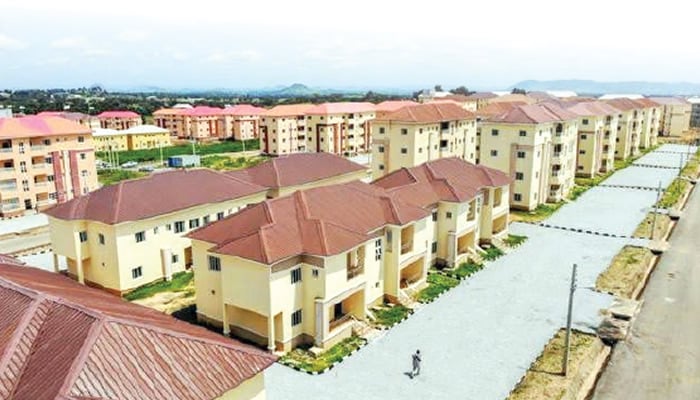Operators have asserted that inflation and sustained forex volatility have raised housing development costs by nearly 90 per cent, compelling developers to battle escalating material prices and severe financing pressures.
This was disclosed at the launch of Dream Place apartments in Lekki, Lagos State.
The Managing Director of Gracemman Nigeria Limited, Oluyemi Ejidiran, noted that rising inflation, forex volatility, and naira devaluation have pushed building material costs up by as much as 90 per cent.
“Real estate development: emerging trends Considering the macroeconomic factors in Nigeria, the sector is fraught with macroeconomic challenges, including inflation impacting materials like cement, steel, tiles, and finishes, which rose 50-70 per cent on average, and in some cases by as much as 90 per cent; currency volatility, with 70 per cent of inputs imported, and even local ones dependent on imported components; and the naira’s sharp devaluation, which directly inflated costs and financing constraints.”
These, he noted, “have forced many project promoters to navigate by relying majorly on equity and off-plan sales, avoiding excessive debt exposure, stockpiling materials in bulk when possible to hedge against further cost increases, and blending local and imported materials, striking a balance that reduced forex exposure while preserving the intended grade of finish.”
Corroborating the above, the Chief Executive Officer of McYouniverse Group, Michael Egbekoya, said, “Inflation has eroded buying power: housing prices have increased roughly 50-70 per cent since 2022, considering materials plus labour, while salaries remain stagnant. Mortgage-to-income ratios have jumped from about 30 to over 45 per cent, pricing many middle-income buyers out of the market.”
Speaking on sustainability, Ejidiran noted that features such as flat roofs prepared for solar integration, rainwater recycling to cut utility costs, smart homes with automation and security provisions, as well as compact designs that maximise density without reducing liveability, are increasingly gaining traction in the sector.
He called for policy consistency, financing frameworks, and infrastructure investment to support developers coming out with innovative ideas and lauded the developer for creating value and inspiring confidence even in difficult times.
Meanwhile, the Managing Director of Prindex Properties, Tolu Bawa-Allah, urged operatives within the housing market, particularly developers, to embrace partnership towards scaling up production and reducing the over 20 million housing deficit.
Bawa-Allah said the project was specifically designed by a team of highly skilled industry professionals who prioritised giving value to subscribers in terms of the quality of the apartments.
“Beyond our developments, we see a future where we need to come together as developers in order to create the kind of impact that can shift the needle in terms of solving present accommodation problems within the state of Lagos and within the country of Nigeria as a whole. Let’s take for instance that 500 developers delivered 100 units of residential apartments yearly consistently for 10 years. That gives us a total of 500,000 units, which is still quite impossible today.
“This doesn’t even scratch the surface in terms of filling an accommodation deficit of 20 million units of housing currently required nationwide. To my mind, I think we need to have a total paradigm shift in order to achieve impactful greatness. We need to see ourselves as collaborators and not competitors,” he said.
He explained that ten developers coming together would achieve more exponentially than if they worked as single companies operating in different spaces, adding that operatives need to work closely with the government as regards land acquisition and also to enable policies that would make infrastructure development and real estate development smoother and easier.
On the progress made by the firm, Bawa-Allah noted that from inception in 2012 to date, it has developed and sold and is currently managing close to a hundred apartments for their subscribers and investors, has close to 200 residents in 77 apartments, and has completed 10 projects, including the Dream Place, as well as grown subscriber and investor numbers to 128.
“The number of skilled and unskilled workmen that have earned a giving for its projects in total since inception is 3,241.”
The Chairman of the board of Prindex Properties, Tola Atekoja, emphasised that the firm was set out for the business of making top-notch property, describing that it’s committed to achieving 5,000 units by 2030. He solicited for stakeholders’ collaboration in achieving the vision.






